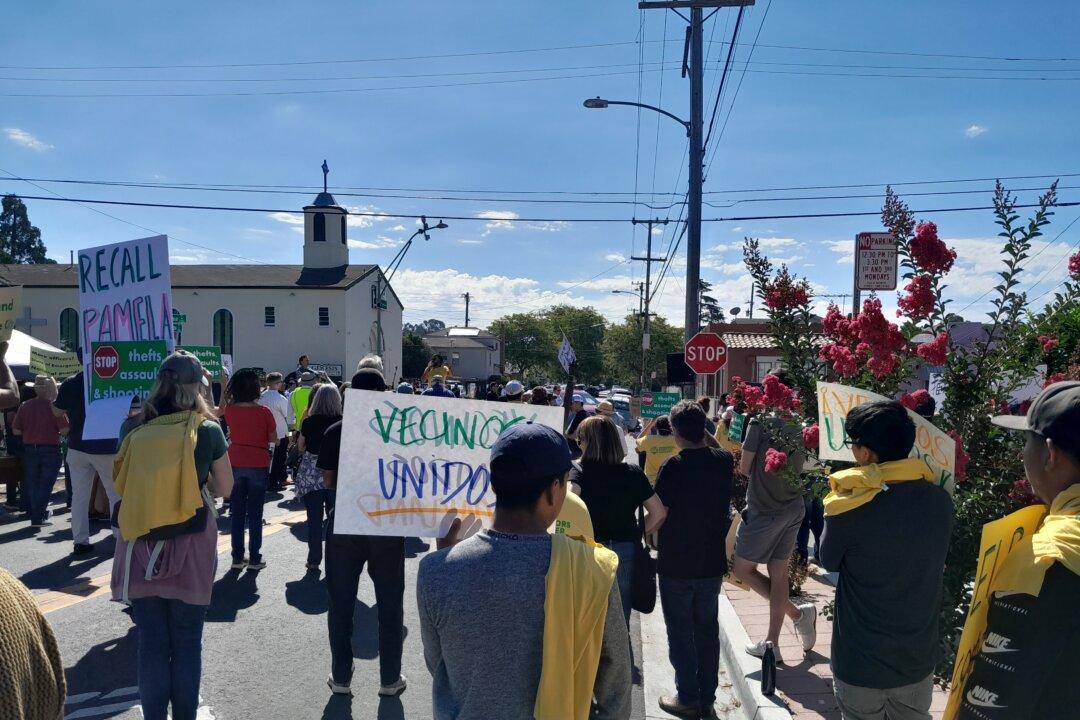Commentary
Residents of Oakland’s high-crime neighborhoods held a rally on Sept. 9 to demand solutions from public officials. The gathering was held on a street that had recently seen shootings between facing houses.

Residents of Oakland’s high-crime neighborhoods held a rally on Sept. 9 to demand solutions from public officials. The gathering was held on a street that had recently seen shootings between facing houses.